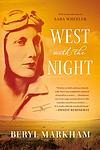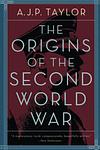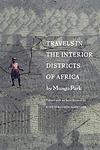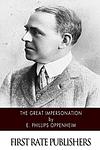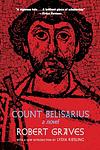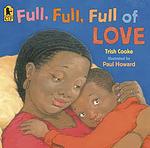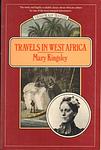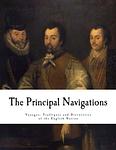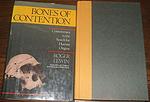The Greatest British "Africa" Books of All Time
Click to learn how this list is calculated.
This list represents a comprehensive and trusted collection of the greatest books. Developed through a specialized algorithm, it brings together 300 'best of' book lists to form a definitive guide to the world's most acclaimed books. For those interested in how these books are chosen, additional details can be found on the rankings page.
Genres
The "Africa" category for books encompasses literature that is set in or about the continent of Africa, its people, cultures, and history. This category includes a diverse range of genres, including fiction, non-fiction, memoirs, biographies, and historical accounts. The books in this category explore the complexities of African societies, their struggles, triumphs, and the impact of colonialism and globalization on the continent. The Africa category offers readers a window into the rich and diverse cultures of Africa, and the challenges and opportunities facing the continent in the modern world.
Countries
Date Range
Reading Statistics
Click the button below to see how many of these books you've read!
Download
If you're interested in downloading this list as a CSV file for use in a spreadsheet application, you can easily do so by clicking the button below. Please note that to ensure a manageable file size and faster download, the CSV will include details for only the first 500 books.
Download-
1. Heart of Darkness by Joseph Conrad
This classic novel follows the journey of a seaman who travels up the Congo River into the African interior to meet a mysterious ivory trader. Throughout his journey, he encounters the harsh realities of imperialism, the brutal treatment of native Africans, and the depths of human cruelty and madness. The protagonist's journey into the 'heart of darkness' serves as both a physical exploration of the African continent and a metaphorical exploration into the depths of human nature.
-
2. The Second World War by Winston Churchill
This book provides a comprehensive overview of the Second World War from the perspective of one of its most influential leaders. It covers the entire span of the war, from its origins in the political and economic turmoil of the 1930s, to the major battles and strategic decisions that shaped its course, to its aftermath and impact on the world. The author's unique perspective and firsthand experience, combined with his eloquent and insightful writing, make this a definitive account of one of the most important events in modern history.
-
3. West With the Night by Beryl Markham
The book is a memoir of a British-born woman who grew up in Kenya during the early 20th century. She recounts her unconventional upbringing, her passion for horses, and her career as a bush pilot. The narrative is filled with vivid descriptions of the African landscape and wildlife, as well as her personal adventures and encounters. The book culminates with her historic solo flight across the Atlantic from east to west.
-
4. King Solomon's Mines by H. Rider Haggard
This adventurous novel follows the journey of a group of explorers who set out to find the legendary King Solomon's Mines in unexplored Africa. Led by a brave hunter, they face numerous dangers including wild animals, hostile tribes, and harsh landscapes. Their journey becomes a fight for survival, and they discover a lost kingdom along the way. The novel explores themes of colonialism, masculinity, and the allure of the unknown.
-
5. African Stories by Doris Lessing
This collection of stories offers a diverse and multifaceted portrayal of African life, drawing from the author's own experiences growing up on a farm in Rhodesia. The tales span across time, from pre-colonial Africa to the modern era, and tackle themes of race, colonialism, gender, and power. The narratives are richly detailed, providing a vivid glimpse into the complexities and contradictions of African society.
-
6. Second World War by John Keegan
"Second World War" is a comprehensive account of the global conflict that took place from 1939 to 1945. The book offers a detailed examination of the political, military, and social aspects of the war, from the rise of Hitler and the attack on Pearl Harbor, to the Holocaust and the dropping of the atomic bomb. The author provides an in-depth analysis of the strategies and tactics used by the major powers, and presents a vivid picture of the human cost of the war. The book also includes a variety of maps and photographs to help illustrate the events and locations discussed.
-
7. Travels in the Interior Districts of Africa by Mungo Park
"Travels in the Interior Districts of Africa" is a detailed account of the author's exploration into the heart of Africa at the end of the 18th century. The narrative provides an in-depth look at the geography, flora, fauna, and local cultures of the region at the time. The author, a Scottish explorer, recounts his journey along the Niger River, his encounters with different African tribes, his experiences of being captured and enslaved, and his eventual escape. The book offers a unique perspective on African society and the European perception of Africa during this period.
-
8. The Great Impersonation by E Phillips Oppenheim
This novel revolves around a thrilling case of identity exchange set against the backdrop of pre-World War I Europe. The story begins when an English gentleman, after a chance encounter in Africa, decides to impersonate a German aristocrat, leading to a complex web of espionage, political intrigue, and romance. As the plot unfolds, the protagonist navigates through the dangerous waters of international diplomacy and personal betrayal, all while maintaining his disguise. The narrative masterfully combines elements of mystery, adventure, and spy fiction, making it a captivating read that explores themes of identity, loyalty, and the intricate dance of global politics on the eve of a world-changing conflict.
-
9. Count Belisarius by Robert Graves
This historical novel brings to life the Byzantine Empire through the eyes of its most celebrated general, Belisarius. Renowned for his loyalty and military genius, the protagonist navigates the treacherous waters of political intrigue, betrayal, and warfare in an attempt to serve his emperor while maintaining his own honor. Set against the backdrop of the 6th century, the narrative not only explores the complexities of Belisarius's military campaigns against the Persians, Vandals, and Goths but also delves into his personal life, highlighting his relationship with his wife Antonina and his dealings with the cunning Empress Theodora. Through its detailed portrayal of ancient warfare, political maneuvering, and the human condition, the novel offers a vivid reimagining of a pivotal period in history.
-
10. Sacred Hunger by Barry Unsworth
"Sacred Hunger" is a historical novel that explores the Atlantic slave trade in the 18th century. The story follows the journey of a Liverpool merchant's ship, filled with slaves, as it travels from Africa to the Americas. The narrative delves into the harsh realities of the slave trade, the inhuman conditions aboard the ship, and the moral complexities faced by the crew. After a mutiny, the survivors establish a utopian community in Florida, only to face the threat of civilization once again. The novel is a profound examination of greed, power, and the human capacity for cruelty.
-
11. So Much! by Trish Cooke
"So Much!" is a heartwarming children's book that follows a young girl named Mama, as she excitedly prepares for her family's arrival. With each page, the anticipation builds as Mama eagerly cleans, cooks, and organizes, ensuring everything is perfect for their visit. Through lively and colorful illustrations, this joyful story captures the love and warmth of a close-knit family, highlighting the importance of togetherness and the joy that comes from sharing special moments with loved ones.
-
12. Beat the Devil by Claud Cockburn
"Beat the Devil" is a satirical novel that follows the adventures of its protagonist, a British journalist, who becomes entangled in a complex plot involving a group of eccentric characters, including a fraudulent tycoon, a femme fatale, and a mysterious Italian prince. The story, set in post-war Italy, is a humorous and biting critique of capitalism, greed, and political corruption, and it is filled with intrigue, deception, and unexpected twists.
-
13. Warriors by Gerald Hanley
"Warriors" is a compelling account of the author's experiences during World War II while stationed in Somalia. Tasked with leading Somali soldiers in the British Army, the author confronts not only the harsh realities of a brutal and unforgiving desert war against insurgent tribes but also grapples with the psychological toll of isolation and the moral complexities of leadership and colonialism. The narrative delves deeply into themes of courage, loyalty, and the human condition, offering a poignant exploration of the burdens carried by those in command.
-
14. No Mercy by Redmond O'Hanlon
The book is a riveting travelogue that follows the author's harrowing journey into the depths of the Congo Basin, seeking to uncover the truth behind the legends of a dinosaur-like creature said to inhabit the region. Accompanied by a motley crew of scientists and adventurers, the author battles the relentless forces of nature, encounters a myriad of dangerous wildlife, and grapples with the psychological strains induced by the harsh and unpredictable environment. The narrative is as much an exploration of the human spirit and the bonds formed in extreme circumstances as it is a quest for a mythical beast, all told with a blend of humor, vivid description, and keen anthropological insight.
-
15. Travels in West Africa by Mary Kingsley
This book is a captivating travelogue by a Victorian-era Englishwoman who explores the uncharted territories of West Africa. The author, a pioneering female explorer, recounts her journeys through remote regions, encountering diverse cultures, dangerous wildlife, and challenging climates. Her observations, insights, and experiences provide a unique perspective on the colonial attitudes of her era, as well as the rich cultural tapestry and natural beauty of West Africa. The book serves as both an adventure story and a historical document, offering a woman's perspective on exploration and colonialism.
-
16. Through the Dark Continent by Henry M. Stanley
This book chronicles the author's journey through Africa, from east to west, as he explores the unknown regions of the continent during the late 19th century. The narrative details his encounters with various African tribes, the treacherous natural environments he navigates, and the hardships he and his team face. The author's mission is to discover the course of the Congo River, and his findings ultimately contribute significantly to Western knowledge about Africa.
-
17. Journal of the Discovery of the Source of the Nile by John Hanning Speke
This book is a detailed account of an adventurous exploration to discover the source of the Nile River. The author, an English explorer, recounts his journey through Africa, detailing the various hardships, dangers, and cultural encounters experienced along the way. The narrative culminates in his discovery of Lake Victoria, which he claimed as the Nile's source. The book offers an intriguing look into 19th-century African exploration and the determination that led to one of the era's most significant geographical discoveries.
-
18. The Principal Navigations by Richard Hakluyt
"The Principal Navigations" is a comprehensive collection of English travel narratives from the 16th century, detailing a wide range of voyages and expeditions. The book includes accounts of journeys to the New World, Asia, and Africa, and features explorations by famous figures like Sir Francis Drake and Sir Walter Raleigh. The narratives provide a historical record of the era's discoveries, cultural encounters, and colonial endeavors, giving readers a unique insight into the period's maritime exploration and its impact on the world.
-
19. The Fearful Void by Geoffrey Moorhouse
"The Fearful Void" is a gripping account of a man's solo journey across the Sahara Desert, a place of extreme beauty and danger. The author's journey is not just physical, but also a spiritual and psychological exploration as he confronts his fears and limitations, dealing with loneliness, harsh weather conditions, and the vastness of the desert. The book is as much about self-discovery and personal growth as it is about the geographic and cultural aspects of the Sahara.
-
20. Brazzaville Beach by William Boyd
"Brazzaville Beach" by William Boyd is a thought-provoking novel that explores the complexities of human relationships and the impact of scientific research on our understanding of the world. Set in the lush landscapes of Africa, the story follows Hope Clearwater, a primatologist who finds herself caught between the chaos of civil war, the ethical dilemmas of her research, and the turmoil of her personal life. As she grapples with love, loss, and the pursuit of knowledge, Hope's journey becomes a captivating exploration of the human condition and the fragile balance between progress and destruction.
-
21. Bones Of Contention: Controversies In The Search For Human Origins by Roger Lewin
"Bones of Contention: Controversies in the Search for Human Origins" delves into the complex world of paleoanthropology, exploring the heated debates and conflicting theories surrounding the study of human evolution. Through a meticulous examination of fossil discoveries, scientific methodologies, and the personalities involved, the book sheds light on the ongoing quest to unravel the mysteries of our ancient past. With a balanced and engaging approach, the author navigates through the controversies, providing readers with a captivating exploration of the ever-evolving field of human origins.
Reading Statistics
Click the button below to see how many of these books you've read!
Download
If you're interested in downloading this list as a CSV file for use in a spreadsheet application, you can easily do so by clicking the button below. Please note that to ensure a manageable file size and faster download, the CSV will include details for only the first 500 books.
Download

